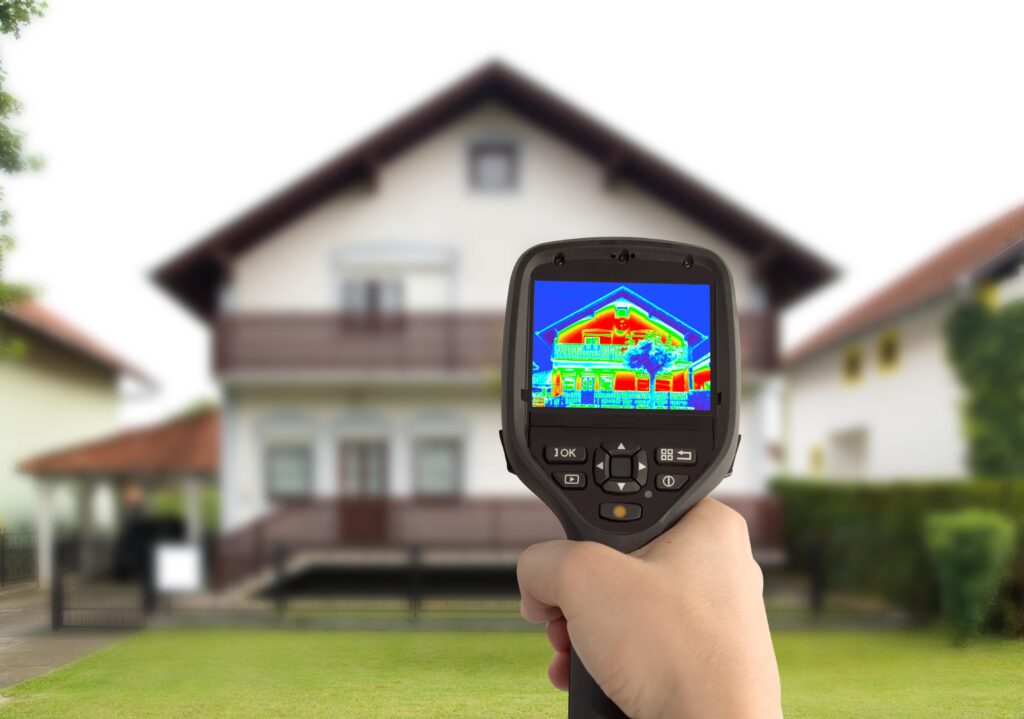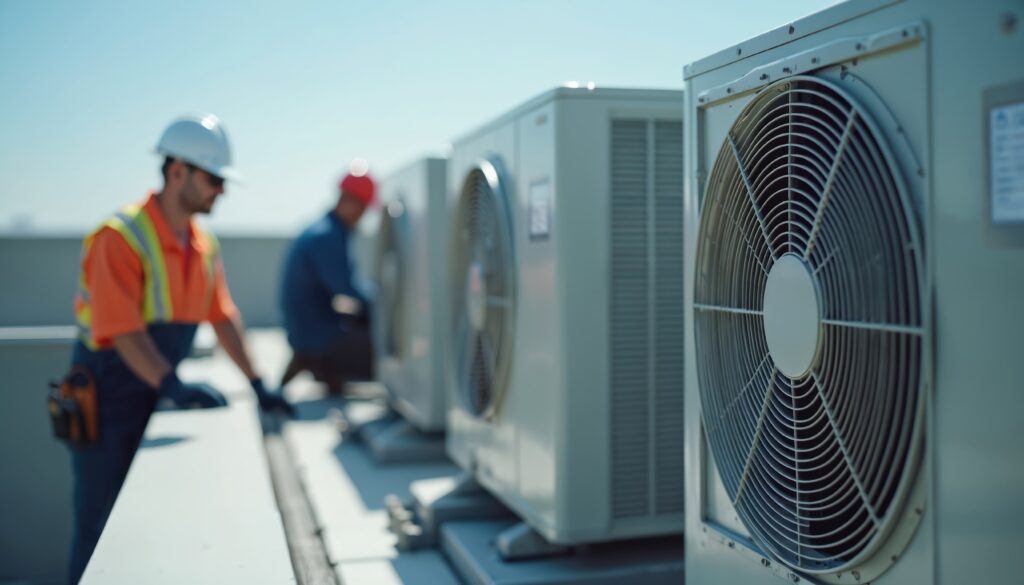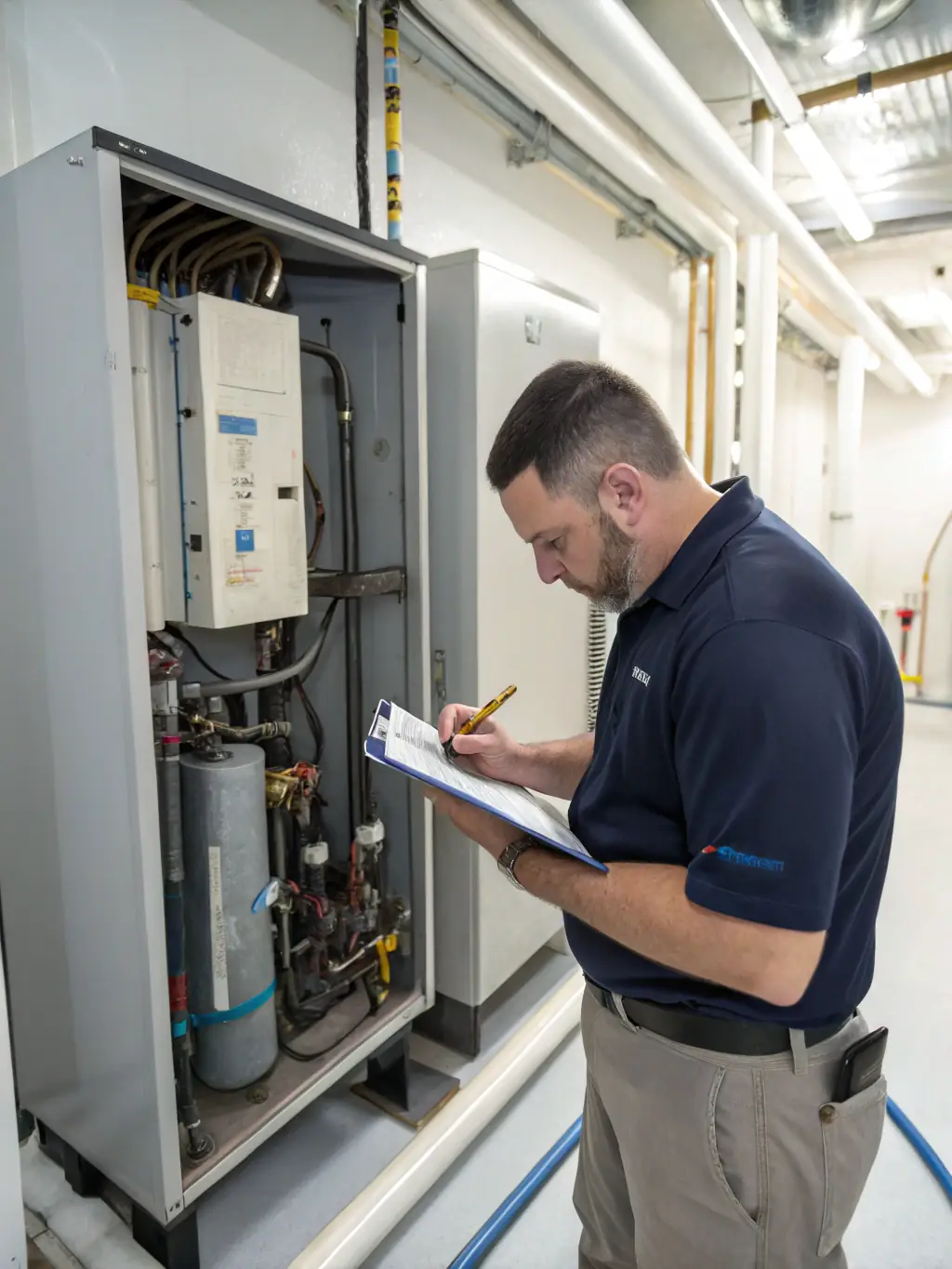Failing a commercial EPC can cause major setbacks for business owners, landlords, and facility managers across the UK. A poor energy performance certificate (EPC) rating not only affects compliance with MEES regulations but can also impact lease renewals, resale potential, and overall asset value.
At EPC-Hub, our accredited assessors have conducted thousands of commercial EPC assessments across multiple industries, from retail parks to warehouses. Through this experience, we’ve identified the most frequent factors that lead to EPC failures and how they can be prevented.
In this article, we’ll break down the top 10 common reasons commercial properties fail their EPC, covering everything from inefficient heating systems to missing documentation. You’ll also learn what practical steps you can take to boost your EPC rating and remain compliant under tightening MEES requirements.
If your property recently failed an EPC, or you suspect it might, this guide will help you understand the causes, corrections, and next steps.

What Does It Mean to Fail a Commercial EPC?
When a commercial property fails its EPC, it receives a rating below ‘E’, which currently breaches the UK’s Minimum Energy Efficiency Standards (MEES). This means the property cannot be legally leased or renewed until it reaches the required energy efficiency level.
The government has proposed increasing the minimum standard to a C rating by 2027 and potentially B by 2030, which will affect thousands of UK commercial landlords.
Failing an EPC doesn’t mean the property is unsafe, but it does signal high energy inefficiency. The reasons are often technical, avoidable, and correctable with expert guidance.
The Top 10 Reasons Commercial Properties Fail Their EPC
Below are the most common issues found during EPC surveys across UK commercial buildings.
1. Poor or Missing Insulation
Insufficient wall, roof, or floor insulation is the leading cause of EPC failure. Buildings that lose heat quickly require more energy to maintain temperature, resulting in a low efficiency score.
Solution: Install modern insulation materials in cavity walls, roofs, and floors. If upgrades have been made, ensure certificates and specifications are available for the EPC assessor.
2. Outdated or Inefficient Heating Systems
Old boilers, electric storage heaters, and systems without proper controls severely affect EPC performance.
Solution: Upgrade to modern, high-efficiency systems with thermostatic and zoning controls. Consider renewable heating solutions where feasible, such as air-source heat pumps.
3. Inefficient Lighting
Lighting systems are one of the easiest areas to improve yet often overlooked. Halogen bulbs and older fluorescent fittings without motion or daylight sensors reduce efficiency.
Solution: Switch to LED lighting with automatic controls. Document upgrades with specifications for evidence during the EPC assessment.
4. Single-Glazed or Poor-Quality Windows
Single glazing or degraded frames result in significant heat loss.
Solution: Install double or triple-glazed windows and ensure proper sealing. Upgrades can dramatically improve a property’s EPC score.
5. High-Energy-Consumption Appliances
HVAC systems that consume excessive electricity will negatively impact your EPC.
Solution: Replace outdated units with energy-efficient alternatives certified under the Energy Technology List (ETL).
6. Lack of Documentary Evidence for Upgrades
Even if a building has energy-efficient improvements, the assessor can only record what’s proven with documentation. Missing certificates for insulation or system upgrades often result in a worse score.
Solution: Keep clear records of all energy-related upgrades. Always request and store installation certificates, invoices, and product data sheets.
7. Changes in EPC Assessment Conventions
EPC assessment methods evolve. Buildings assessed years ago may see score changes under new standards, especially where supporting evidence is missing.
Solution: Have your EPC reassessed by an accredited assessor like EPC-Hub, who can review the latest conventions and apply current methodologies correctly.
8. Incorrect or Incomplete Previous Assessments
Some properties fail due to inaccuracies in past assessments, such as incorrect U-values, lighting counts, or unverified heating systems.
Solution: Commission a second opinion EPC from EPC-Hub. Our consultants will audit your data, verify assumptions, and provide a corrected report if applicable.
9. Changes in Heating or Energy Type
We do not recommend changing electric systems to gas – unlike domestic EPCs, this is not appropriate for commercial properties; in fact, the opposite is true, and we would suggest replacing gas or oil-fired systems with heat pumps or electric systems.
Solution: Review any planned changes with a commercial energy assessor before installation. EPC-Hub’s consultants can model the projected impact using simulation tools.
10. Inadequate Building Management & Controls
Lack of smart systems for temperature, lighting, and ventilation control can significantly reduce performance.
Solution: Integrate Building Management Systems (BMS) and smart sensors to optimise energy usage, particularly in large or multi-site commercial premises.

How to Improve Your EPC Rating
Improving a poor EPC rating requires a targeted approach. At EPC-Hub, we provide full MEES consultancy and tailored energy performance recommendations, helping clients across the UK reach compliance efficiently.
Key steps include:
- Conducting a detailed EPC audit to pinpoint high-impact improvements.
- Implementing energy-efficient lighting and heating solutions.
- Retrofitting insulation or glazing upgrades.
- Providing full MEES compliance support with a clear roadmap to reach your target rating.
Get Expert EPC Recommendations — contact EPC-Hub today to discuss your commercial property and secure your compliance.
Industry Sectors Most Affected by EPC Failures
Certain commercial sectors are more prone to EPC issues due to building age and operational energy use.
Common examples include:
- Warehouses and factories with older heating systems
- Retail units and shopping centres with large lighting demands
- Office buildings using outdated heating systems, poorly insulated roofs and inefficient lighting systems
- Hotels, care homes, and leisure venues with 24/7 energy usage
By understanding the challenges unique to your sector, EPC-Hub can tailor solutions that align with your operational and compliance goals.
Why Choose EPC-Hub?
At EPC-Hub, excellence is at the core of everything we do. We offer:
- Speed of Response: Fast nationwide service for urgent EPC needs.
- Reliability: Trusted by councils, corporates, and property managers UK-wide.
- Accredited Expertise: All assessors are fully accredited and experienced in complex commercial EPCs.
- Compassionate Service: We go the extra mile to deliver a smooth and stress-free experience.





